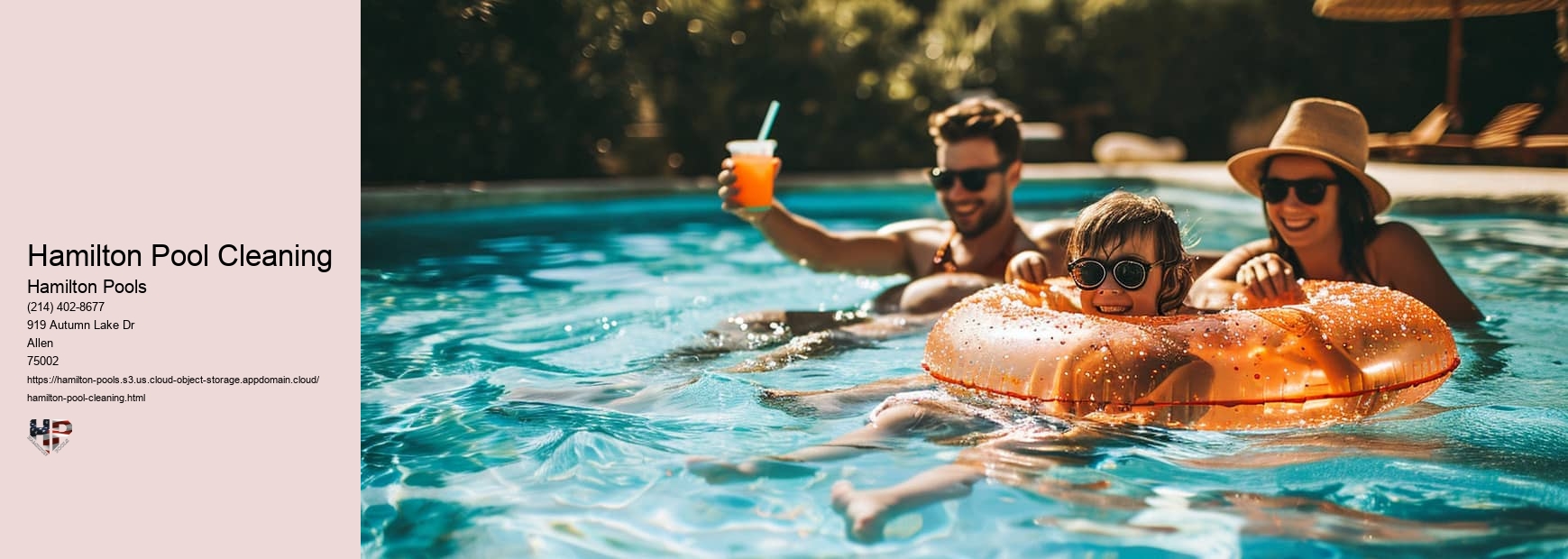
Don't just take our word for it. Our satisfied customers have left positive reviews on platforms like Yelp, praising our professionalism and expertise in equipment installation and repair. Join the ranks of our happy customers and experience the difference that Hamilton Pools can make in maintaining and repairing your pool equipment.
What Are the Different Options for Pool Cleaning and Service Offered by Hamilton Pools? At Hamilton Pools, we offer a range of pool cleaning and service options to meet your needs. Our skilled technicians can provide routine cleaning, including vacuuming, skimming, and backwashing, to keep your pool crystal clear. We also specialize in addressing common pool problems like algae growth and mineral buildup. In addition, we offer comprehensive repair services for plumbing, heaters, and pumps. With our commitment to customer satisfaction and expertise in pool care, we are the go-to choice for all your pool maintenance needs.
In the case of equipment repair, we understand the importance of quick and effective solutions. Our technicians are experienced in troubleshooting and diagnosing issues with your pool equipment. Whether it's a malfunctioning pump or a clogged filter basket, we will identify the problem and provide the necessary repairs to get your equipment back up and running.
Hamilton PoolsYes, you can! Adding too much baking soda (sodium bicarbonate) raises pH significantly, disrupting water balance and causing cloudy water or skin irritation. Stick to recommended dosages for pH adjustments and avoid overdoing it!
Skim the surface, brush the walls and floor, vacuum the bottom, and test and adjust water chemistry. These four steps, done regularly, will keep your pool sparkling and safe for swimming.
Muriatic acid (diluted hydrochloric acid) lowers high pH levels in pool water. High pH makes water cloudy, irritates skin, and hinders chlorine effectiveness. Use it cautiously and only after measuring pH to avoid over-acidification!
In swimming, 'C' can have multiple meanings depending on the context. It might refer to 'crawl', the freestyle swimming stroke, or 'chlorine', the primary sanitizer used in pools. Sometimes, it can also stand for 'championship' or 'club' competitions.
Shocking your pool with a high dose of chlorine is the fastest way to kill existing algae. However, it's not a long-term solution. Maintain proper water chemistry, including chlorine levels and pH balance, to prevent future algae growth. Brushing and vacuuming regularly also help!
Liquid chlorine is often the most cost-effective way to shock a pool, especially for smaller volumes. Consider granular options if you deal with larger pools or require longer-lasting shock action. Consult a pool store for specific recommendations!
Distribute it! Pour shock evenly around the perimeter of your pool, near skimmers and returns to ensure thorough circulation. Avoid concentrating it in one spot to prevent localized damage. Consider using shock tablets in feeders for slow, continuous release!
Brushing first dislodges dirt and algae, making vacuuming more efficient. Brush the walls and floor thoroughly, then vacuum to capture the loosened debris. This order ensures a cleaner pool with less effort!